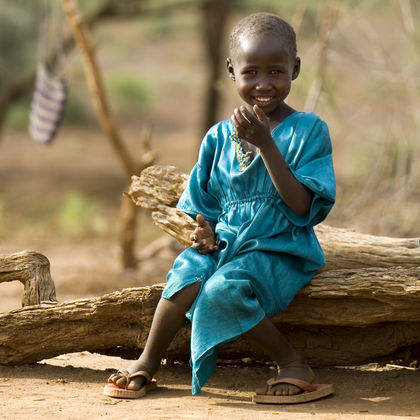Nigeria - Poverty and wealth

Despite Nigeria's enormous resources and potential, poverty is widespread throughout the nation. Its basic indicators place it among the 20 poorest countries of the
| Exchange rates: Nigeria | |
| nairas (N) per US$1 | |
| Jan 2001 | 110.005 |
| 2000 | 101.697 |
| 1999 | 92.338 |
| 1998 | 21.886 |
| 1997 | 21.886 |
| 1996 | 21.884 |
| SOURCE: CIA World Factbook 2001 [ONLINE]. | |
| GDP per Capita (US$) | |||||
| Country | 1975 | 1980 | 1985 | 1990 | 1998 |
| Nigeria | 301 | 314 | 230 | 258 | 256 |
| United States | 19,364 | 21,529 | 23,200 | 25,363 | 29,683 |
| Dem. Rep. of Congo | 392 | 313 | 293 | 247 | 127 |
| Cameroon | 616 | 730 | 990 | 764 | 646 |
| SOURCE: United Nations. Human Development Report 2000; Trends in human development and per capita income. | |||||
| Distribution of Income or Consumption by Percentage Share: Nigeria | |
| Lowest 10% | 1.6 |
| Lowest 20% | 4.4 |
| Second 20% | 8.2 |
| Third 20% | 12.5 |
| Fourth 20% | 19.3 |
| Highest 20% | 55.7 |
| Highest 10% | 40.8 |
| Survey year: 1996-97 | |
| Note: This information refers to expenditure shares by percentiles of the population and is ranked by per capita expenditure. | |
| SOURCE: 2000 World Development Indicators [CD-ROM]. | |
world. Nigeria has been in stagnation and relative decline since 1981, from a per capita GDP of US$1,200 in 1981 to about US$300 in 2000. In 1992, 34.1 percent of the population was below the poverty line, according to the CIA World Factbook 2000 ; about 70 percent fell below that line in 2000, according to the World Bank.
For many Nigerians the quality of life has declined rather than improved since independence 40 years ago. By contrast, the standard of living for a few privileged Nigerians—military officers and their civilian associates, corrupt politicians, and big contractors—has improved substantially. The average salaried worker cannot earn enough to support a family because of inflation and rises in food prices and transportation costs. The national minimum wage of N5,500 (about US$55.00) per month, adopted by the federal government but rejected by most of the states, falls far short of what is needed to cover housing, food, education, health care and transportation. The material condition of women, who comprise 50 percent of the population, is even worse than that of men because the welfare of women in general, including education, political participation, and workforce, had been neglected over the years until recently. The incidence of prostitution of Nigerian women within and outside the country has therefore increased. It is no wonder, given these prevailing conditions, that hypertension has become a major sickness among Nigerians since the 1980s.
Housing and living facilities for the wealthy are very similar to those available to their counterparts in countries of the western world. Middle and lower-level income groups in the urban and rural areas live in individual houses or crowded flats (apartments). Rural dwellers live in cement or mud block houses with tin or thatched roofs, and have no running water for the most part. Water and electricity services in the major cities are erratic. Water supplies in many rural areas are infested with disease-carrying worms, while electricity services, under government auspices, are seldom available.
There is, therefore, much despair throughout Nigeria, a situation that has led to a "brain drain" from the country to other nations of the world. Much of the despair can be linked to the abysmal quality of life of the average Nigerian, and also to the huge income disparity between the poverty-stricken masses and the few well-to-do Nigerians. Mismanagement and corruption on the part of the government squandered the nation's wealth, and fostered an atmosphere of violence and instability that makes it very difficult to attract foreign investors. Unfortunately, the legislative and executive arms of the present civilian rule include leaders from the corrupt and wasteful regimes of Babangida and Abacha who helped create that climate. Their presence casts doubt over the
| Household Consumption in PPP Terms | |||||||
| Country | All food | Clothing and footwear | Fuel and power a | Health care b | Education b | Transport & Communications | Other |
| Nigeria | 51 | 5 | 31 | 2 | 8 | 2 | 2 |
| United States | 13 | 9 | 9 | 4 | 6 | 8 | 51 |
| Dem. Rep. of Congo | N/A | N/A | N/A | N/A | N/A | N/A | N/A |
| Cameroon | 33 | 12 | 8 | 2 | 9 | 8 | 28 |
| Data represent percentage of consumption in PPP terms. | |||||||
| a Excludes energy used for transport. | |||||||
| b Includes government and private expenditures. | |||||||
| SOURCE: World Bank. World Development Indicators 2000. | |||||||
nation's ability to rise above its tumultuous past into a brighter future.
The economic situation—the abject poverty and the high rate of unemployment especially—has not improved since Obasanjo became president in May 1999, despite his administration's Poverty Alleviation Program. His critics argue that the program consists merely of direct cash transfer to politically selected beneficiaries. The gap between the rich and the poor continues to widen. Segments of the nation continue to complain about their marginalization (being left at the margin or neglected), while others are favored. Armed robbery and wide-spread insecurity persist.